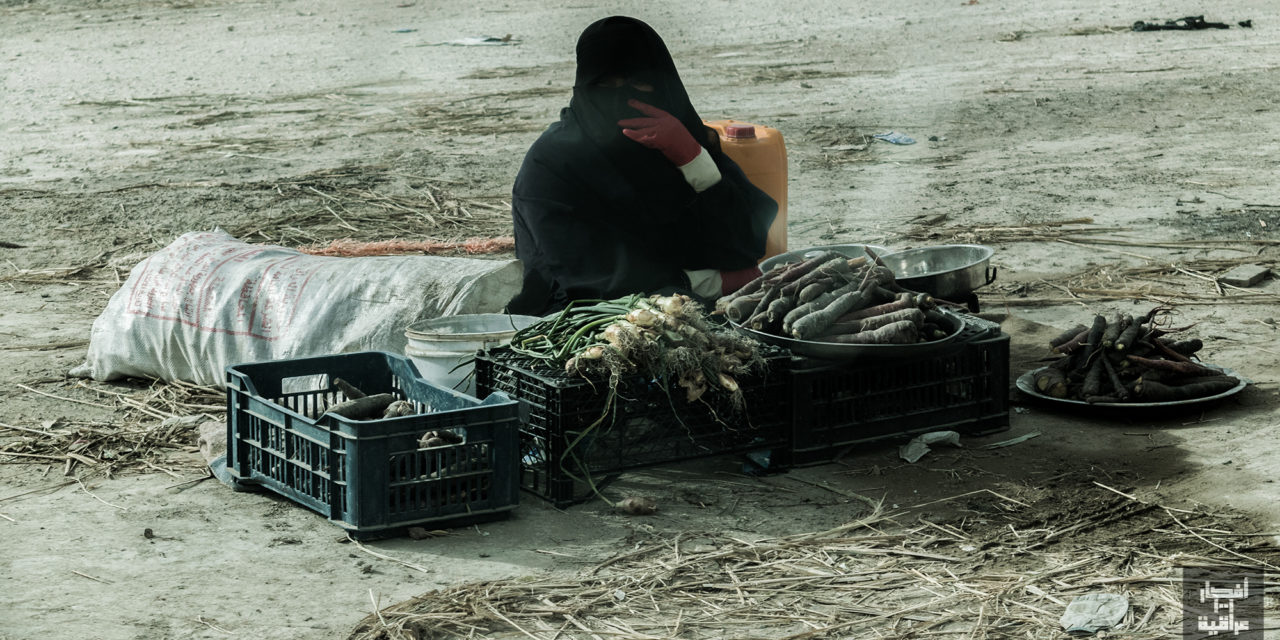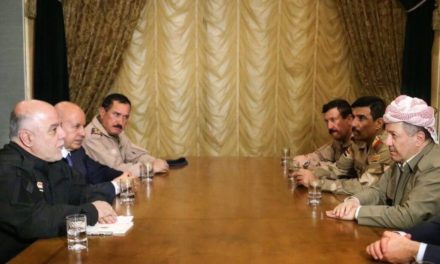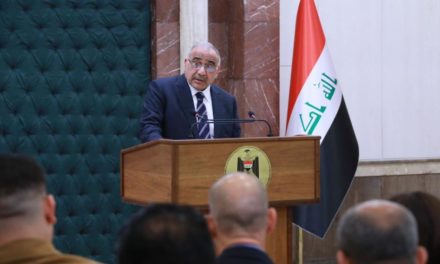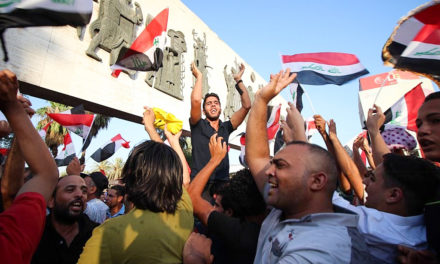(Local selling their produce on the roadside despite a raging sandstorm in Chibayish. Photo: Ali Khadi/1001 Iraqi Thoughts)
Climate change and environmental degradation are impacting Iraq’s overall stability and the well-being of its population. However, women, especially those in rural areas who depend on the land for economic prosperity and their communities’ survival, are particularly at a higher risk. While many women in these communities already face imposed gender norms and patriarchal conditions, environmental degradation is putting women at further risk of exposure to violence, physical and psychological threats, and diminishing educational and economic opportunities. Any mitigation efforts to address Iraq’s climate crisis must take into account the gendered nature of environmental vulnerability.
The unfolding crisis of environmental degradation and climate vulnerability in Iraq requires both immediate and long-term examination and planning. As temperatures soar and precipitation declines all across the Middle East and North African region, Iraq’s long history of conflict, infrastructure destruction, and institutional weakness has left the country in a particularly weak position. Iraq is vulnerable to climate breakdown due to extreme temperatures as well as decreased water and food availability. The combination of these conditions will have a negative impact on the country’s economic, political, and social stability. And the results can already be seen on the ground. From internal displacement that is impacting the country as a whole, especially its southern territories, to an increase in the frequency of wildfires impacting green spaces due to high maximum air temperature and wind speed, to different health crises impacting the country’s population, all of these factors are undermining Iraq’s stability and the wellbeing of its population.
However, similar to how not all MENA countries are experiencing the same environmental degradation and climate vulnerability, so is the case with those living within Iraq. For example, Iraqis dependent on agriculture as their main source of income are at higher risk of displacement and loss of income, support, and social networks. This is the product of multiple factors, including state actors’ limited interest in investing in and developing the agricultural sector and its infrastructure, which increases its vulnerability to climate threats. For example, Iraq’s main subsidy program for farmers is the Wheat and Barley Purchase Program, which allows the state to buy wheat and barley directly from farmers at double the international prices. However, farmers have long complained of late payments and a decline in fertilizer and seed subsidies. As farmers are experiencing the worst of water shortage and climate impact, the policy decision to halve the area planted with irrigated crops in order to minimize water consumption –rather than invest in infrastructure—has led to the decline of cereal production by 40% in 2022, adding pressure on farmers.
According to the Iraqi Ministry of Agriculture, an astounding 92% of Iraqi land is under the threat of desertification, with 15% of the land, or about 10,400 square miles (26,936 square kilometers), already decertified. When combined with the extreme water shortage the country is experiencing, these conditions have limited the available land needed for food production. For example, in al-Alam district, reports documented a decline in annual cereal production from 103,000 tonnes to 53,000 tonnes between 2019 and 2021. These conditions are forcing many young men to migrate from rural to urban centers in search of work in overpopulated and job-scarce cities.
However, as the rural population that depends on the land for a living is experiencing the immediate impact of environmental degradation, women in particular are increasingly vulnerable. This vulnerability appears in many ways, based on the location of the family or household, how they experience climate degradation, whether they are forced to move in climate-induced migration, and how this impacts the work they do in their household to sustain the livelihoods of their families. While it is important to note that women in rural areas of the country experience different forms of oppression and imposed gender roles, the impact of environmental degradation has further worsened their living conditions by exposing them to an added risk of violence and limiting their access to education and economic opportunities.
For instance, while young men are most likely to experience displacement in search of economic opportunities in nearby cities, women are often left behind to tend to the farmland, which adds to their burden and responsibility and might eventually cascade down to the children. The increasing pressure is felt across Iraq. Often the decision-making process to stay or to migrate as individuals or as a family is done by the men of the household, with women occupying a peripheral position in making decisions on migration or resource allocation. During a research project conducted by UNDP in the Marshland of southern Iraq, Um Issa, who is taking care of 10 children in these extreme conditions, said, “When the Marshland dries up, we nearly starve because droughts affect humans and animals alike. Men leave the Marshland for the cities and seek other jobs in the police force or the army, leaving their families in sordid poverty and hunger, which forces us to shoulder greater responsibilities to support our families.” As temperatures increase and water supplies shrink, buffalos, an essential part of the economic stability of the Marshland in Iraq, are forced to travel further in search of water and food, and with that, women in the area are also forced to travel with their animals farther and farther from their households, which exposes them to a higher potential risk to their personal safety and leave them with less time to their other increasing tasks.
Meanwhile, women who are forced to migrate with their families and abandon their farmland will also face new pressures in their new homes, linked to their labor, to their economic status, as well as access to support systems and social safety nets. For instance, as families move to urban centers, men will seek to find jobs in an increasingly competitive market. On the other hand, women are more likely to be pushed to focus on household care and childbearing, which takes away from them the important economic roles they once occupied. With the decline in their economic role, they are also more likely to experience added pressure to conform to gender norms and added risk of falling victim to abuse and violence. This is particularly true as women lose many of their existing social networks and support systems after being uprooted from their traditional communities into a new and likely more hostile space. Additionally, since existing infrastructure and resources, such as health care and low enforcement, already have limited capacity to address the population’s needs, these resources are less likely to add protection or replace the existing safety net climate-displaced women have lost.
The psychological impact of these changing dynamics is not fully known or examined in Iraq, and the impact of the separation of families and the increasing responsibilities of women in an increasingly hostile environment is something that requires further examination. As a result, the potential negative impact women will face due to ever-worsening climate conditions is not fully explored, yet this understanding is necessary to grasp the impact of environmental degradation and climate vulnerability fully.
It is important to highlight that as women are under additional threat from changing climate, they must also be at the center of climate response. For example, indigenous women have long lived on the land and have invaluable knowledge and expertise that can help build community resilience from within. In fact, research finds that communities are more successful in building environmental resilience and capacity-building strategies when women are part of the decision-making process. As a result, no climate understanding or climate action in Iraq is complete without understanding how the climate impacts women’s well-being and resource access and without including women in the conversation and the decision-making process.
This essay is part of a special series – Iraq after 2003: The Voices of Iraqi Women

Zeinab Shuker
Zeinab Shuker is an assistant professor of sociology at Sam Houston State University in Texas and a fellow at Century International and Emirates Policy Center. Her work explores the theoretical and policy implications of the impact of oil dependency on the Middle East and North Africa region’s economic, political, social, and environmental development, emphasizing Iraq’s past and present. She examines the interplay of oil dependency, state capacity, conflict induced by climate change, and the region’s destabilization.










